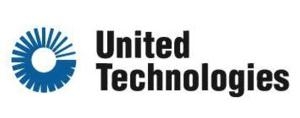Sun, Jul 20, 2014
Company Plans To Offer Tablet-based Electronic Flight Bag System For Boeing, Airbus Airplanes
The FAA has issued an STC to UTC Aerospace Systems for its new tablet-based electronic flight bag (EFB) system on the Airbus A320 series aircraft. The system allows tablet devices, such as an Apple iPad, to display critical flight information for enhanced operational effectiveness and offers a clear upgrade path to accommodate future airspace technologies.

The system STC covers the company's new Tablet Interface Module (TIM) coupled with an aircraft-installed Aircraft Interface Device (AID) and modular installation kit. The TIM works with the AID to allow the user's tablet to perform as an EFB and access an array of key aircraft avionics data such as GPS position, ground speed and aircraft heading – something that has previously been unavailable to tablet EFB users. In addition, UTC Aerospace Systems has received parts manufacturing approval (PMA) for the TIM.
Since the STC automatically incorporates certified AID hardware on the aircraft, customers can readily upgrade to the tablet-based EFB system. The interaction between the TIM and AID benefits the customer because the EFB is modular, meaning new configurations will build off the previous configurations. Customers will be able to increase their system capability over time by tailoring the tablet-based EFB for unique aircraft installations including future NextGen and SESAR airspace requirements.
The company expects to install the same system on an Airbus A320 aircraft in Europe, as well as Boeing Next-Generation 737 aircraft in both the U.S. and Europe in the second half of 2014.
"Having both FAA and EASA certification for our tablet-based EFB system on two of the most popular aircraft in the world will allow airlines everywhere to realize the cost and efficiency benefits of paperless operation," said Brian Sartain, director, Business Development, Sensors and Integrated Systems. "Users of both the Airbus A320 and Boeing Next-Generation 737 aircraft can implement a Class 2 EFB system, approved by Apple for use with the iPad, in the near term; and in the future they can easily upgrade to a full Class 3 SmartDisplay EFB system for both regulatory compliance and proven cost enhancements."
More News
He Attempted To Restart The Engine Three Times. On The Third Restart Attempt, He Noticed That Flames Were Coming Out From The Right Wing Near The Fuel Cap Analysis: The pilot repor>[...]
Make Sure You NEVER Miss A New Story From Aero-News Network Do you ever feel like you never see posts from a certain person or page on Facebook or Instagram? Here’s how you c>[...]
From 2009 (YouTube Edition): Leading Air Show Performers Give Their Best Advice for Newcomers On December 6th through December 9th, the Paris Las Vegas Hotel hosted over 1,500 air >[...]
Aero Linx: NASA ASRS ASRS captures confidential reports, analyzes the resulting aviation safety data, and disseminates vital information to the aviation community. The ASRS is an i>[...]
“For our inaugural Pylon Racing Seminar in Roswell, we were thrilled to certify 60 pilots across our six closed-course pylon race classes. Not only did this year’s PRS >[...]
 NTSB Final Report: Rutan Long-EZ
NTSB Final Report: Rutan Long-EZ ANN FAQ: Turn On Post Notifications
ANN FAQ: Turn On Post Notifications Classic Aero-TV: ICAS Perspectives - Advice for New Air Show Performers
Classic Aero-TV: ICAS Perspectives - Advice for New Air Show Performers ANN's Daily Aero-Linx (06.28.25)
ANN's Daily Aero-Linx (06.28.25) Aero-News: Quote of the Day (06.28.25)
Aero-News: Quote of the Day (06.28.25)



